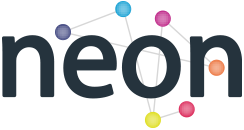NEON Professional Course: Breaking Ground, December 2025 – July 2026
Access Academy Training
Date
09/12/2025 - 09/07/2026
Time
10:00 am - 12:00 pm
Breaking Ground is our course for those working in education who want to develop a more in depth understanding of widening access. The course is made up of eight, online, two-hour sessions which will be held on a monthly basis and will run from December to July. Each session will look at a different aspect of widening access and participants will have access to a brand new Teams group, forming a community of practice where they can build valuable networks and mutually support each other. Upon successful completion of the course and a reflective learning diary, participants will earn a NEON Associate Professional accreditation.
This course is suitable for you if you are:
- Currently working in widening access or student recruitment. The course will be particularly relevant for colleagues who have started working in access or recruitment in the past three years.
- Currently working within the areas of student transition, student success or graduate employability and are involved in Access and Participation Plan (APP) related projects.
- An academic with a specific interest in widening access, or with responsibility for widening access within their subject area.
- A teacher with responsibility for links with higher education organisations.
- Working in a Students Union, engaging with educational projects in the local community.
- Employed as a student host or ambassador.
Delivery mode: Online sessions
Number of sessions: 8
Duration of sessions: 2 hours
Facilitator: Dr Jon Rainford, Lecturer and Staff Tutor, School of Education, Childhood, Youth and Sport, The Open University
Course Content:
| Session | Learning outcomes |
| 1. Widening access policy Tuesday 9 December 2025 |
|
| 2. Why do inequalities in education exist and why should we be concerned with addressing them? Thursday 15 January 2026 |
|
| 3. Addressing inequalities pre and post 18 Tuesday 10 February 2026 |
|
| 4. Widening access – what approaches should we use? Thursday 12 March 2026 |
|
| 5. Developing interventions Tuesday 14 April 2026 |
|
| 6. Addressing inequalities in practice Thursday 14 May 2026 |
|
| 7. Influence, influencers and influencing the influencers Tuesday 9 June 2026 |
|
| 8. Course review Thursday 9 July 2026 |
|
